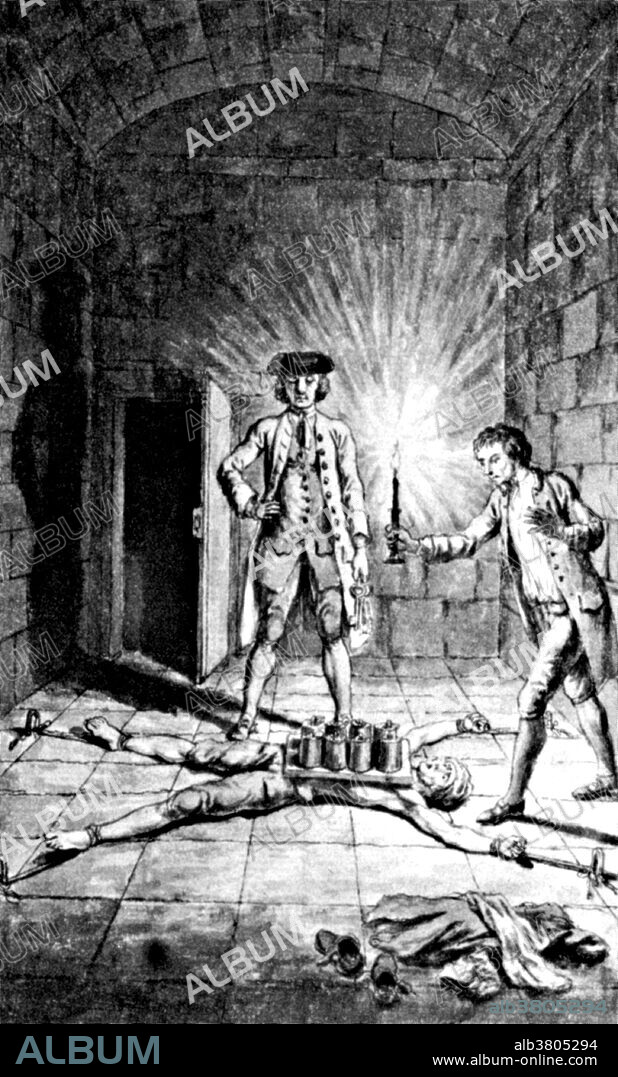alb3805294
William Spiggot Suffers Peine forte et dure, 1721

|
Añadir a otro lightbox |
|
Añadir a otro lightbox |



¿Ya tienes cuenta? Iniciar sesión
¿No tienes cuenta? Regístrate
Compra esta imagen

Título:
William Spiggot Suffers Peine forte et dure, 1721
Descripción:
Ver traducción automática
William Spiggot was an 18th century English highwayman. During his trial, he at first refused to plead and was sentenced to be pressed until he pleaded. This was called Peine forte et dure. He was later executed, after a second trial when he pleaded not guilty, on February 11, 1721. Peine forte et dure (hard and forceful punishment) was a method of torture formerly used in the common law legal system, in which a defendant who refused to plead would be subjected to having heavier and heavier stones placed upon his or her chest until a plea was entered, or the defendant died. Many defendants charged with capital offenses would refuse to plead in order to avoid forfeiture of property. If the defendant pleaded either guilty or not guilty and was executed, their heirs would inherit nothing. If they refused to plead their heirs would inherit their estate, even if they died in the process. Peine forte et dure was abolished in Great Britain in 1772, with the last known actual use of the practice having been in 1741. Torture is the act of deliberately inflicting physical or psychological pain in order to fulfill some desire of the torturer or compel some action from the victim.
Crédito:
Album / NYPL/Science Source
Autorizaciones:
Modelo: No - Propiedad: No
¿Preguntas relacionadas con los derechos?
¿Preguntas relacionadas con los derechos?
Tamaño imagen:
2898 x 4800 px | 39.8 MB
Tamaño impresión:
24.5 x 40.6 cm | 9.7 x 16.0 in (300 dpi)
Palabras clave:
1721 • ARTE • ATRACADOR • BANDIDO • BLANCO Y NEGRO • CASTIGAR • CASTIGO • CRUEL • CRUELDAD • DIBUJO • EUROPEO • FAMOSO • FIGURA • GENTE • HISTORIA • HISTORICO • HOMBRES • ILUSTRACION • IMPORTANTE • INGLES • INSTRUMENTO TORTURA • LADRON • MALHECHOR • MASCULINO • METODO TORTURA • OBRA DE ARTE • ORDENAMIENTO JURÍDICO • PERSECUCION • PERSONA • PERSONALIDAD • PERSONALIDADES • RATERO • SIGLO XVIII • TORTURADOR • VICTIMA
 Pinterest
Pinterest Twitter
Twitter Facebook
Facebook Copiar enlace
Copiar enlace Email
Email
